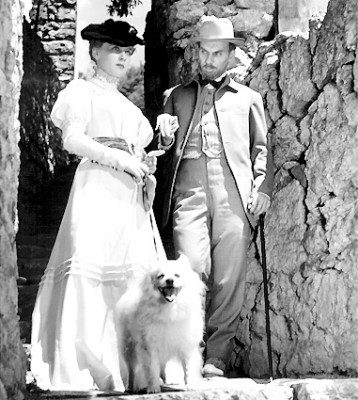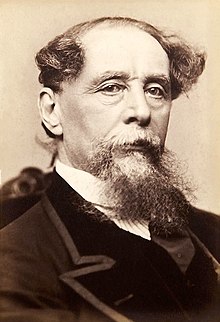

Anton Pavlovich Chekhov (29 January 1860 – 15 July 1904) was a Russian playwright and short story writer who is considered to be among the greatest writers of short fiction in history. His career as a playwright produced four classics and his best short stories are held in high esteem by writers and critics. Along with Henrik Ibsen and August Strindberg, Chekhov is often referred to as one of the three seminal figures in the birth of early modernism in the theater.Chekhov practiced as a medical doctor throughout most of his literary career: "Medicine is my lawful wife", he once said, "and literature is my mistress."
2.James Madison(March 16,1751 – June 28, 1836) was a political theorist, American statesman, and served as the fourth President of the United States . He is hailed as the "Father of the Constitution" for his pivotal role in drafting and promoting the U.S. Constitution and the Bill of Rights.
Madison inherited his plantation Montpelier in Virginia and owned hundreds of slaves during his lifetime. He served as both a member of the Virginia House of Delegates and as a member of the Continental Congress prior to the Constitutional Convention. After the Convention, he became one of the leaders in the movement to ratify it, both nationally and in Virginia. His collaboration with Alexander Hamilton and John Jay produced The Federalist Papers, among the most important treatises in support of the Constitution. Madison changed his political views during his life. During deliberations on the constitution, he favored a strong national government, but later preferred stronger state governments, before settling between the two extremes late in his life.

3.WASP---White Anglo-Saxon Protestant is an informal, sometimes disparaging term for a group of high-status and influential White Americans of English Protestant ancestry. The term applies to a group who control disproportionate financial, political and social power in the United States.It describes a group whose family education, elite connections, status and wealth allow them a degree of opportunity held by few others.
4.Narration is the use of—or the particularly chosen methodology or process of using—a written or spoken commentary to convey a story to an audience.Narration encompasses a set of techniques through which the creator of the story presents their story, including:
- Narrative point of view: the perspective (or type of personal or non-personal "lens") through which a story is communicated
- Narrative voice: the format (or type presentational form) through which a story is communicated
- Narrative time: the placement of the story's time-frame in the past, the present, or the future

The epistolary narrative voice uses a series of letters and other documents to convey the plot of the story. Although epistolary works can be considered multiple-person narratives, they also can be classified separately, as they arguably have no narrator at all—just an author who has gathered the documents together in one place. One famous example is Mary Shelley's Frankenstein, which is a story written in a sequence of letters. Another is Bram Stoker's Dracula, which tells the story in a series of diary entries, letters and newspaper clippings. Les Liaisons dangereuses (Dangerous Liaisons), by Pierre Choderlos de Laclos, is again made up of the correspondence between the main characters, most notably the Marquise de Merteuil and the Vicomte de Valmont.
5. 3C= COMPUTER, COMMUNICATION, CONSUMER

6."It is a melancholy truth that even great men have their poor relations."by Charles Dicken
Charles John Huffam Dickens (7 February 1812 – 9 June 1870) was an English writer and social critic. He created some of the world's best-known fictional characters and is regarded as the greatest novelist of the Victorian era. His works enjoyed unprecedented popularity during his lifetime, and by the twentieth century critics and scholars had recognised him as a literary genius. His novels and short stories enjoy lasting popularity.

7."Man is the only animal that blushes. Or need to." by Mark Twain
Mark Twain began his career writing light, humorous verse, but evolved into a chronicler of the vanities, hypocrisies and murderous acts of mankind. At mid-career, with Huckleberry Finn, he combined rich humor, sturdy narrative and social criticism. Twain was a master at rendering colloquial speech and helped to create and popularize a distinctive American literature built on American themes and language. Many of Twain's works have been suppressed at times for various reasons. Adventures of Huckleberry Finn has been repeatedly restricted in American high schools, not least for its frequent use of the word "nigger", which was in common usage in the pre-Civil War period in which the novel was set.
Vocabulary
1.-ant- suffix means "professional people "For Example-attendant, Protestant ,assistant
2.spect- prefix means"look"
For Example- spectacular, perspective, spectator
3.omni-prefix means "all"
For Example- omnipresent, omnipotent
Movie
It tells the story of Michael Berg, a German lawyer who as a mid-teenager in 1958 had an affair with an older woman, Hanna Schmitz, who then disappeared only to resurface years later as one of the defendants in a war crimes trial stemming from her actions as a guard at a Nazi concentration camp. Michael realizes that Hanna is keeping a personal secret she believes is worse than her Nazi past – a secret which, if revealed, could help her at the trial.

Finding Forrester is a 2000 American drama film written by Mike Rich and directed by Gus Van Sant. An African-American teenager, Jamal Wallace (Rob Brown), is invited to attend a prestigious private high school. By chance, Jamal befriends a reclusive writer, William Forrester (Sean Connery), through whom he refines his talent for writing and comes to terms with his identity.
沒有留言:
張貼留言